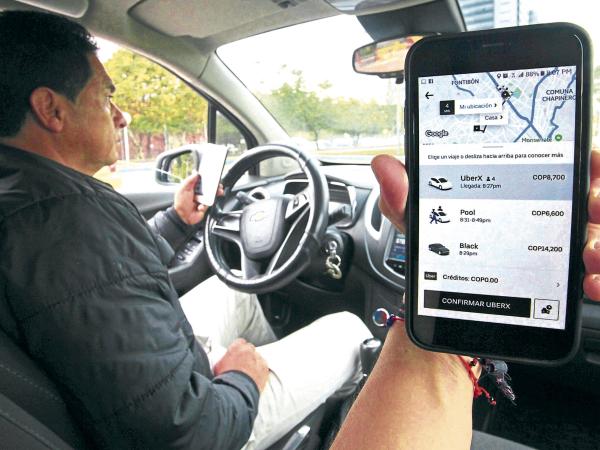Through a letter addressed to the Minister of Transport, María Constanza García, a group of Bogotá councilors, belonging to the coalition of Nuevo Liberalismos and En Marcha, They requested the urgent regulation of technological platforms for transportation services such as Uber, Cabify, DiDi, among otherswhich arrived more than 10 years ago and still do not have guarantees to provide services.
(You may be interested in: Petro explains how his proposal to implement forced investments would work).
Councilors Juan David Quintero, Jesus Araque, Juan Manuel Diaz, Cristina Calderon, Juan Baena, David Saavedra, Ricardo Correa and Fernando Lopez, said in the letter that They consider it necessary for collaborative economy technology platforms to be regulated in order to fill the gaps that currently exist regarding transport services, responsibility and user protection, the balance in competition and the contribution to the country’s technological and economic innovation.
In addition, the councilors propose that the city of Bogotá be a setting for a pilot that guarantees a harmonious market for drivers of these platforms and taxis.
(We also recommend: Seven out of ten merchants say their sales remain stagnant).
“It is important to highlight that these platforms have been victims of unfair competition. Both drivers of these platforms and taxi drivers have been affected by this situation. The former have been chased at police checkpoints, and the latter have assumed unjustified costs.”the coalition highlights.
Bogota Council
THE TIME file
In the particular case of Bogotá, this year there have been two taxi strikes that paralyzed the mobility of citizens, on May 14 and July 23. The lack of regulation of these platforms and the protests by those affected have had a major impact on mobility due to blockades, economic losses, damage to tourism and the violation of the right to free movement.
This coalition expects a prompt response from the National Government that will provide a solution to the more than 100,000 people in the country who work with technological transportation platforms and to the more than 230,000 taxi drivers who are linked to them.
(Besides: The reasons behind the slight improvement in consumer confidence in July).
“It is worth remembering that these platforms have existed for more than 10 years and to date have not been regulated by the State. It is essential that the State fulfils its functions and regulates the matter as soon as possible.”the coalition stressed.
Finally, the councillors are seeking with this regulation to stop the stigmatisation of citizens who honestly work with technological transport platforms, and they emphasise that the high demand in the private travel market has already incorporated drivers who provide their services through these platforms.
PORTFOLIO















